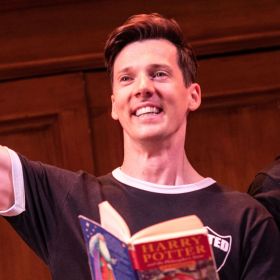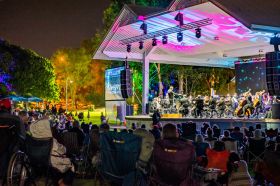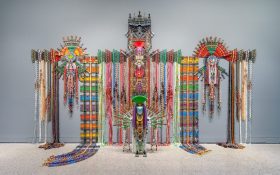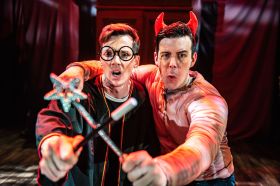Image: Joseph K 2015 Student Production at AFTT.
The word “rehearsal” comes from a Welsh word that means to “re-plough”.
It is an insight that informs Glen Hamilton, Course Director of Acting at the Academy of Film, Theatre and Television , as both an actor and director. ‘The idea of a rehearsal is exploration not repetition. You don’t go into a rehearsal just repeating the same thing that you do over and over again for each rehearsal. You should come in to explore and try new things.’
Hamilton encourages actors to be brave in rehearsal. ‘To have a rich rehearsal period is to explore as much as you can and dare to get it wrong,’ he said. ‘Try less obvious choices and explore as much as you can about the character and the play you are working on.’
The basic advice for starting actors is obvious: turn up on time and learn your lines before rehearsal. But with years of experience Hamilton has learned there is much more to maximising the potential of the rehearsal period.
Find out more about Stage and Screen Acting courses at AFTT
Have an open mind
In many fields we are encouraged to set goals and have a clear idea what we want to get out of an experience.
But Hamilton said one should be very careful when it comes to setting goals prior to rehearsal. ‘You don’t want to sort of limit yourself or pre-determine where you want your rehearsal to go.’
‘What you do want to do is make sure you are committed to each rehearsal, committed to explore. The spirit that you apply to the process should be about exploration, delving deep, reading and lots of analysis.’
Research
Read up on the time and place where the play is set and the background of the playwright before starting rehearsals.
‘See if you can identify perhaps things in their own life that might be present in the play,’ said Hamilton who notes that often after reading the life of a playwright it is possible to see resonances between the biographical information and a character or situation in the work.
Obviously you will learn your lines but also study the text of the play more deeply. ‘Find out as much information from evidence in the text. Find out everything in the text that is said about you, that you say about yourself, or that someone else says about your character.’
Also look closely at the names the playwright uses for the characters. ‘Quite often there are clues in that,’ said Hamilton.
Watch the dots
Learning a text is not just about words – the pauses between them can be just as powerful.
‘Punctuation is often the most important thing, the choice of words as well obviously, but the punctuation tells you the rhythm of the language and it gives you a sense of the pace and the intention behind what each character is saying.’
‘It allows you to understand their thoughts, whether they are long thoughts if it is a long sentence or there might be dialogue in there with lots of short sentences which means they are having a lot of quick thoughts.’
Please don’t explain
Talk less and act more. ‘Show me, don’t tell me,’ said Hamilton, citing a proverb which is common among directors.
‘It’s less about telling me about the character and the story and more about doing. Rehearsals are very active things so it’s about exploring with other cast members and working collaboratively with other cast members on the rehearsal room floor and working through a scene and trying to find the nuance and the relationship and the detail in the scene.’
Applications for 2017 courses at AFTT now open
Dear diary
Keeping a journal through the rehearsal period is a helpful way to record your developing insights and ensure you remember any direction you are given.
‘When you get notes from the director write them down because you will forget them if you don’t,’ said Hamilton. ‘Make sure you notate all of your blocking. You get a lot of information in that rehearsal so it is important that you keep a record of it.’
Discover more about AFTT courses and training
If you are interested in finding out more about the courses on offer at The Academy of Film, Theatre and Television visit http://www.aftt.edu.au/courses
The Essential Skills Series is brought to you in partnership with the Academy of Film, Theatre and Television.





